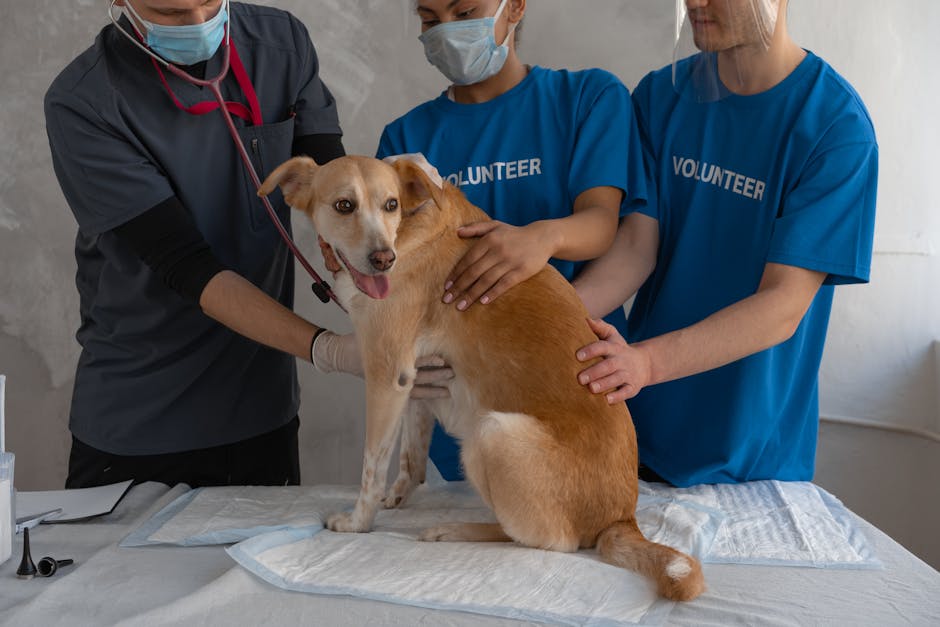Pet ownership is a rewarding experience, but it comes with a responsibility to ensure the wellbeing of our furry, feathered, or scaled companions. Understanding the subtle and sometimes drastic signs that indicate a pet requires immediate veterinary attention is crucial. Ignoring these signals can lead to worsening conditions and potentially even fatalities. This guide aims to equip pet owners with knowledge to differentiate between minor issues and those demanding swift veterinary intervention.
Early detection is paramount. The key to providing optimal care for your pet lies in recognising changes from their typical behaviour and physical state. Here’s a breakdown of critical warning signs, categorized for clarity.
Acute Trauma and Injuries:
Trauma is a significant cause of immediate veterinary concerns. Any sudden accident or incident demanding urgent medical intervention falls under this category. These events can encompass falls from heights, car accidents, fights with other animals, or even being struck by objects. Specific indicators include:
* Obvious wounds: Open cuts, deep lacerations, puncture wounds, or broken bones are easily identifiable. Excessive bleeding, swelling, and visible deformities are associated concerns.
* Deformities: Fractures, dislocations, or any unusual limb positioning should never be ignored.
* Head injuries: Unusual behaviour, lethargy, loss of coordination, or difficulty breathing after a head injury suggests potential brain trauma. Immediate veterinary care is necessary.
* Choking: A pet struggling to breathe, exhibiting a bluish or pale colouration, or making gasping noises requires immediate attention.
* Heatstroke: Pets can rapidly overheat, especially in hot weather. Signs include excessive panting, drooling, high body temperature, confusion, and even collapse.
Respiratory Distress:
Respiratory problems require rapid intervention. Your pet’s breathing apparatus is vital, and any signs of difficulty should be addressed without delay. Look for:
* Laboured breathing: Panting that seems unusually vigorous, or wheezing, coughing, or difficulty inhaling or exhaling requires urgent attention.
* Bluish or pale gums and mucous membranes: A lack of oxygenated blood is a serious sign and necessitates immediate veterinary care.
* Difficulty breathing: Any struggle to breathe, including rapid, shallow breaths or noisy breathing, is a cause for concern.
* Excessive mucus: A persistent cough, especially accompanied by mucus production, may indicate a respiratory infection needing antibiotics.
Gastrointestinal Issues:
Gastrointestinal distress, including vomiting and diarrhoea, can stem from various causes, ranging from minor upsets to serious infections. Monitoring the frequency, consistency, and volume of these symptoms is crucial.
* Severe vomiting: Vomiting blood, excessive vomiting, or vomiting accompanied by lethargy, dehydration, or abdominal pain needs immediate intervention.
* Severe diarrhoea: Diarrhoea that is severe in terms of volume, frequency, or bloody or greasy appearance, requires swift attention.
* Loss of appetite: A prolonged loss of appetite along with lethargy is a major concern.
* Abdominal pain: A stiff posture, reluctance to move, or licking at the abdomen could indicate pain and require professional evaluation.
Neurological Changes:
Sudden changes in behaviour or neurological function demand immediate veterinary care. These changes can stem from a range of underlying issues.
* Seizures: Any convulsive activity, loss of consciousness, or shaking mandates urgent veterinary evaluation.
* Changes in mentation: Lethargy, confusion, aggression, or disorientation are red flags that could indicate a neurological issue.
* Paralysis or weakness: Sudden loss of mobility or weakness in limbs necessitates immediate medical attention.
* Loss of coordination: Uncoordinated gait or difficulty maintaining balance points to a possible neurological condition.
Urinary and Fecal Issues:
Problems with urination and defecation could signal serious health concerns. Careful observation and documentation are essential in such cases.
* Difficulty urinating or defecating: Straining, reluctance to urinate or defecate, or producing unusual amounts of urine or faeces could signal an obstruction.
* Inability to urinate: Inability to urinate necessitates immediate veterinary attention.
* Blood in urine or stool: Presence of blood in urine or faeces should prompt a prompt veterinary visit, indicating potential infections or other abnormalities.
* Urinary incontinence: Sudden onset of involuntary urination or inability to control urination demands veterinary assessment.
Other Significant Indicators:
* Sudden onset of limping or pain: Any new lameness or apparent discomfort in a joint needs immediate veterinary intervention.
* Dehydration: Visible weight loss, sunken eyes, and dry gums are all indications of dehydration that demand attention.
* Significant changes in eating or drinking habits: Unusual increases or decreases in appetite and/or water intake can signify underlying health problems.
* Changes in energy levels: Unusual lethargy or extreme hyperactivity can indicate a significant health issue.
* Difficulty breathing: Any problem maintaining normal breathing patterns necessitates urgent evaluation.
It’s crucial to note that this list is not exhaustive. If you observe any unusual behaviour or physical changes in your pet, it’s always better to err on the side of caution and consult a veterinarian promptly. A veterinarian is best equipped to diagnose the cause and recommend the appropriate course of action. Ignoring these signs could result in a deterioration of your pet’s health, so acting swiftly is vital.
